Guernsey Motor Neurone and Les Bourgs initiative brings people closer together during end-of-life and respite care
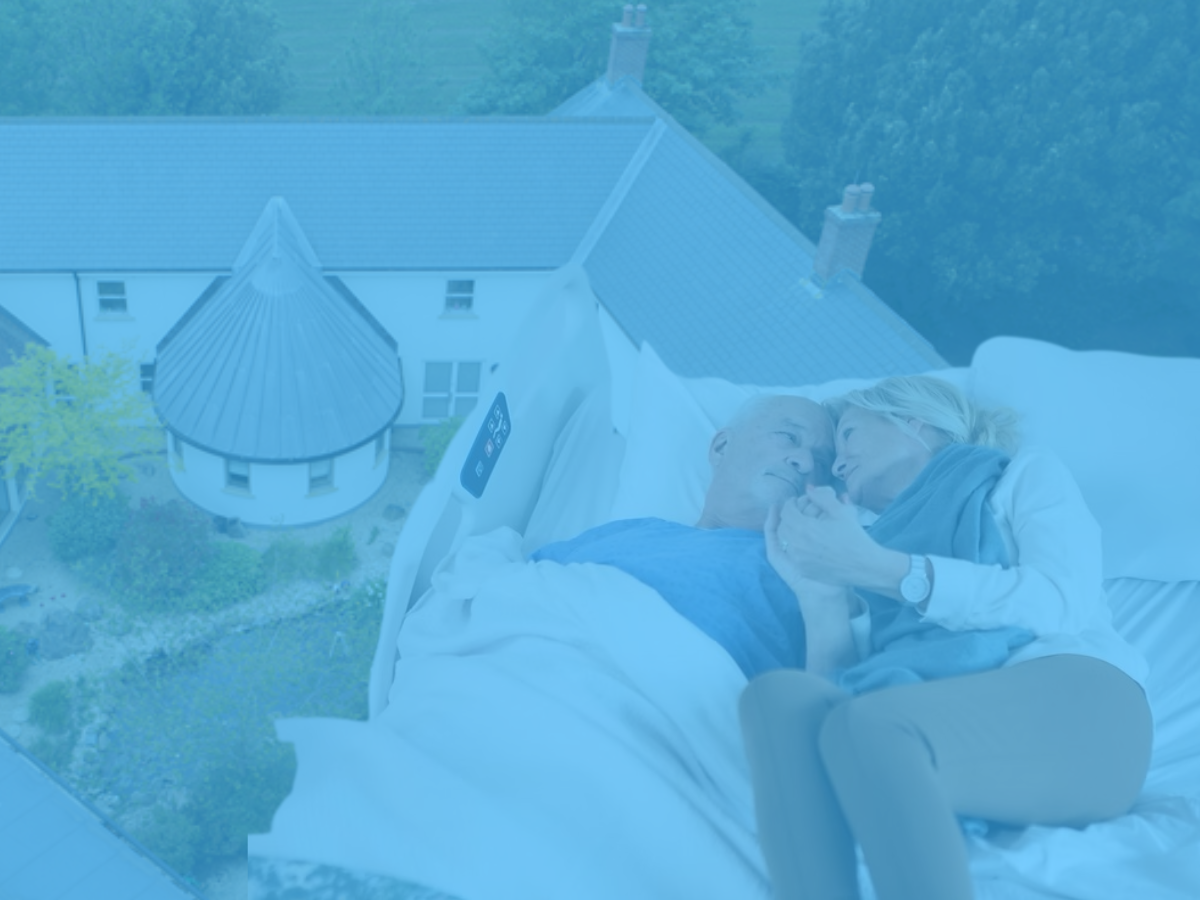
Moments of closeness, touch, warmth, simple things that we can take for granted.
But their importance only grows as we near the end of their lives or face complex health difficulties.
Until now traditional beds in Les Bourgs Hospice may have acted as an unintentional barrier to these connections between families, friends and even pets that can bring so much comfort.
Thanks to a unique collaboration with Guernsey Motor Neurone that is all changing.
All seven beds are being replaced with what are known as Cuddle Beds, not only transforming interactions but also helping with how people are cared for.
Guernsey Motor Neurome became aware of the beds after a chance conversation with somebody from the hospice.
“We said we would be very interested in finding out about how we could get involved in helping them to replace all the bed stock with the new cuddle beds,” said Susie Hunt from Guernsey Motor Neurone.
“People living with Motor Neurone Disease will very often spend time in the hospice, not just for palliative care, but often for respite. And their physical needs are extraordinary. If you have MND, you're constantly battling with the physical challenges day to day, so we support anything that we felt could make that easier.
“And who doesn't love a cuddle? Who doesn't love just being able to curl up with someone that you love, or your kids or your grandkids or your partner, your dog, anybody? But that physical contact is such a hugely important part of the mental well being side of things, which people who are living with MND can often find very tricky to manage.”
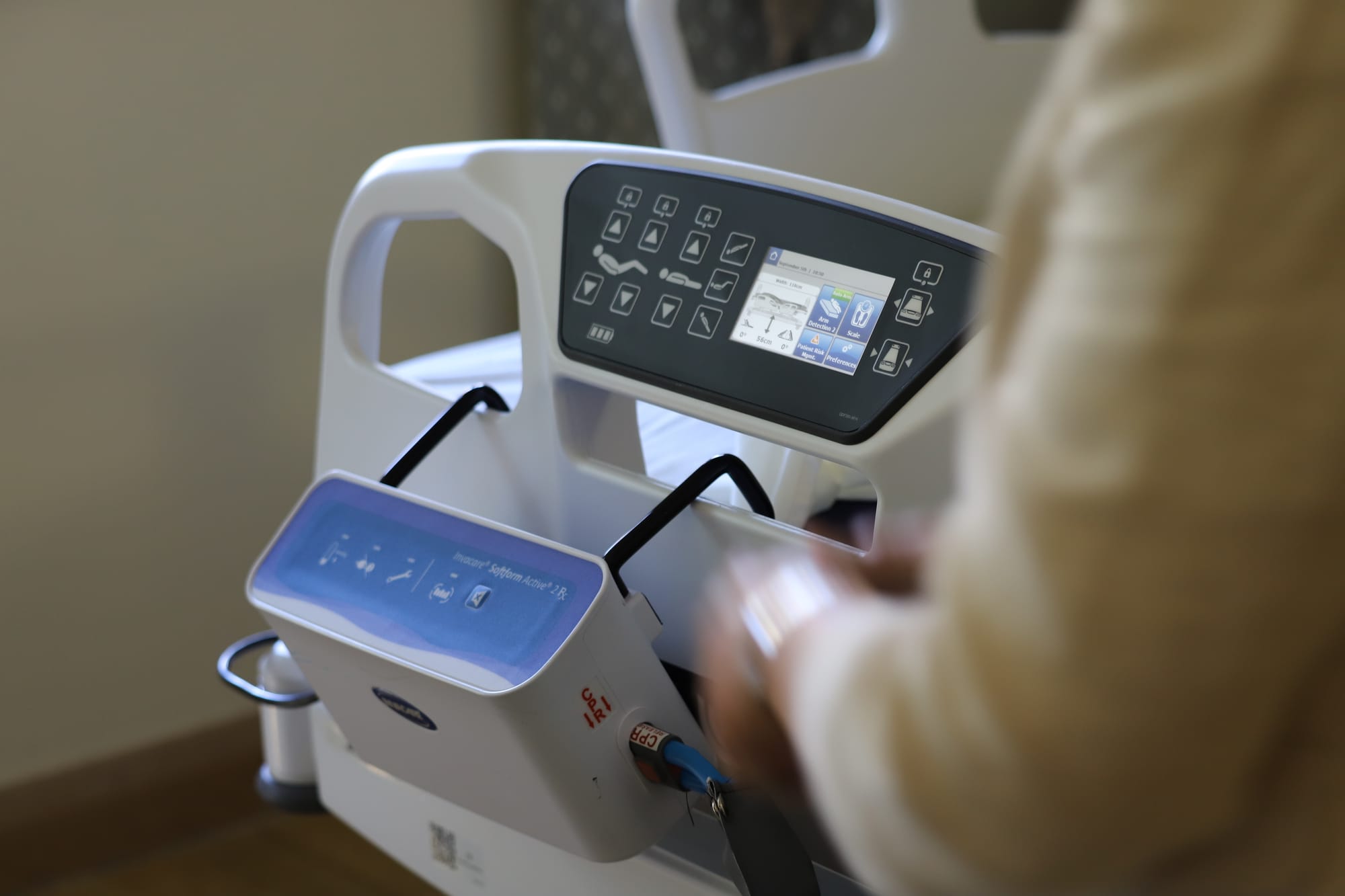
At a touch of a button the beds transform into doubles, allowing patients to lay side by side.
Costing almost £17,000 each, they also can unobtrusively weigh patients to help the nurses care, sound an alert if a patient has got out of bed unexpectedly or light the way should they need to go to the bathroom.
They also help with pressure injury prevention.
The collaboration is an example of how charities can work collectively to make improvements.
“If we can come together for the good of people who are needing hospice care, why wouldn't we?”
"We're humans, we need that touch"
Patron of Guernsey Motor Neurone, Dame Mary Perkins, is one of the donors who has helped.
“It's so important that towards the end of somebody's life, they need their loved ones close by, and these beds allow the closeness and the touch.
“So although it started off with Motor Neurone Disease, it applies to anybody who's in the hospice to be close to their family, or their pets as well. You don't want to feel isolated just because you have a lot of equipment around you and be on your own. This is what I feel is important, we're human beings, we need that touch.”
The Cuddle Bed initiative is another area where Les Bourgs is at the forefront of best practice.
Leading the way
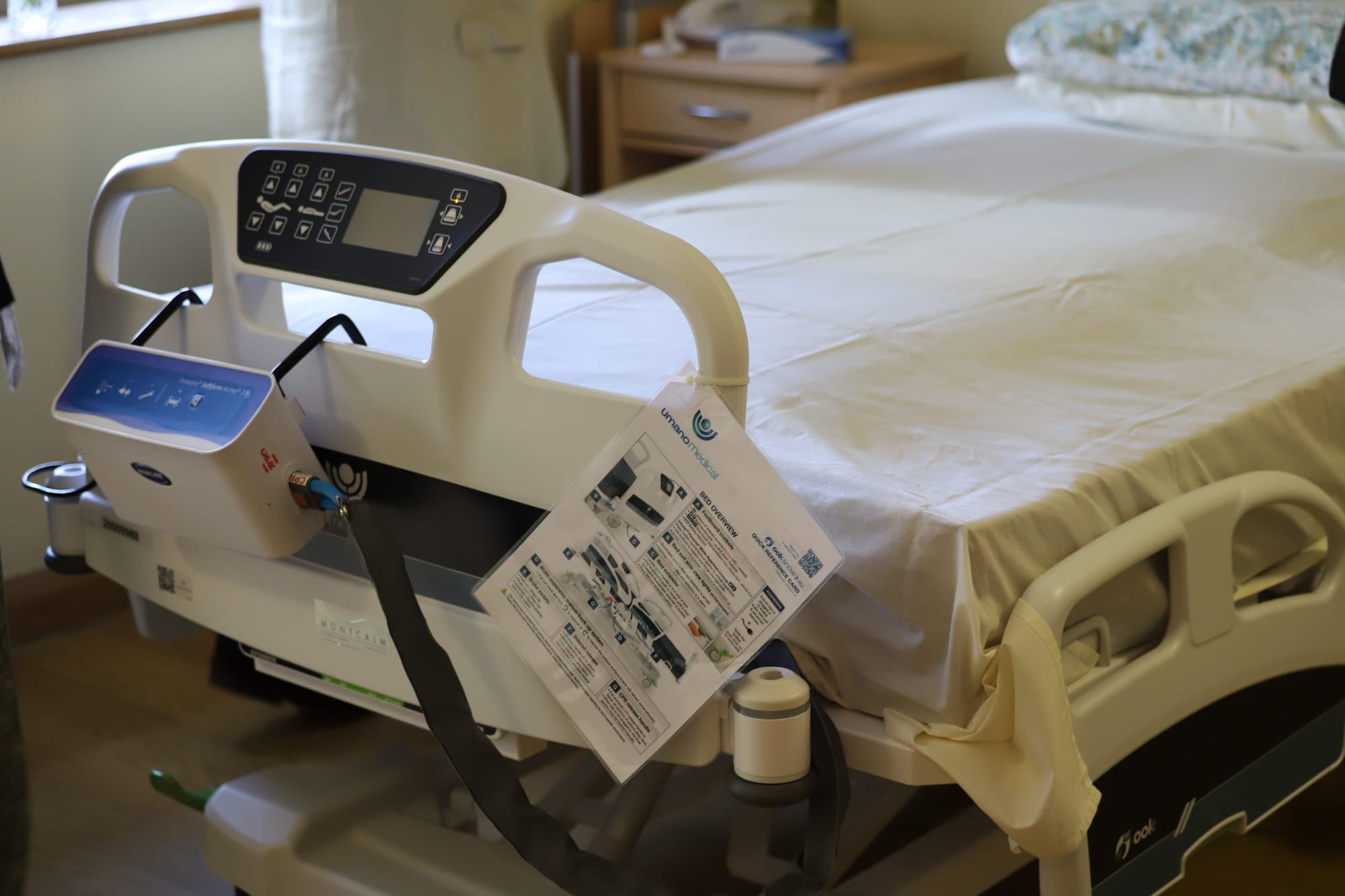
Les Bourgs Hospice CEO Rob Jones said: “that's always a wonderful thing to be able to do when you're leading an organisation, and what it means for the staff as well, in terms of knowing that they've got the support, they've got the right equipment, and also primarily for our patients and their families, that they know that they can interact with their loved ones in a way that they didn't think was possible.”
He said the partnership with GMD came about through a spirit of generosity combined with an understanding of what people need in the community.
“It has been very, very straightforward, and it's been an absolute pleasure the whole process from being contacted by Guernsey Motor Neurone, having the conversation, to sorting out the order, to getting things in place and everything, it could not have gone more smoothly.”
The final two beds are arriving this year, allowing time for staff training.
“It's really technology helping nursing in a good way. And it is a demanding role, emotionally and physically. It’s technology like this that actually makes the job easier, but also being able to observe that families are having a better experience is something that raises the spirits here. That's where the job satisfaction comes from.”
Lt Gov Lt Gen Richard Cripwell is patron of Les Bourgs.
“I think it's important for a variety of reasons, the sort of macro level, the way in which Guernsey Motor Neurone and Les Bourgs are working so effectively together is really special and I hope, provides an example to other charities about how the sum can be greater than the parts.
“The beds themselves are a wonder. They're a wonder of engineering, but they're a wonder of care as well. In the first place that the patient who is in them is safer, more secure in a bed of this nature, and I'm so pleased that by the end of this year, they hope that every bed in the hospice will be like this.
“And it assists the staff in the care of that patient through the things that they're able to do, but perhaps more intangibly, the way in which the beds can be used to allow a patient to interact more emotionally, more physically, with those who they love, with those who have cared for them, sometimes over many years, is, I think, something that you can't put a price on.”
A rapidly evolving need
The beds are just one example where Les Bourgs is adapting.
Another is having to cope with an aging demographic leading a greater demand for hospice and palliative support and greater complexities with multiple conditions that need to be treated and supported.
“There's also a younger generation of people who are getting, particularly cancer at an earlier stage," said Mr Jones
“So we've adapted to that. We've adjusted to that. There's a lot in there about helping support staff when they are caring for someone at end of life, who might be in their 20s, or, for example, if someone is maybe in their 30s and 40s and they have young children.
"We've adapted our service to support the whole family and support children as well. A lot of change has happened in the past two years, because that's really where we've seen this change happen more quickly.
“It has come on very fast.
“We'd like to understand more about what's driving that. And that's why working with other charities is really important, because if you work together, then you can find ways of making things better at an earlier stage.”
Coming soon from The Quarry’s Dig This podcast: Charity Spotlight on Les Bourgs

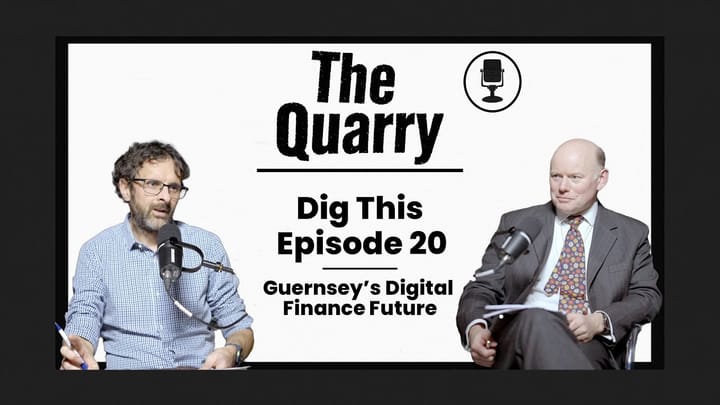

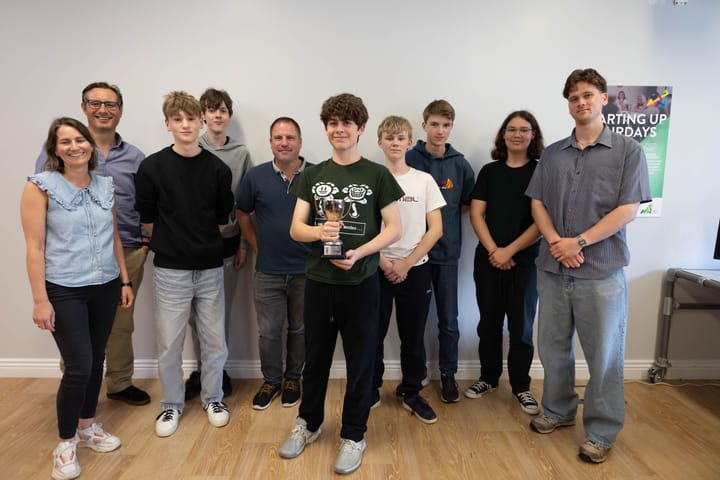
Comments ()